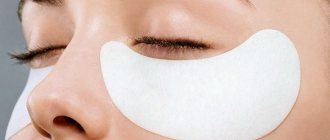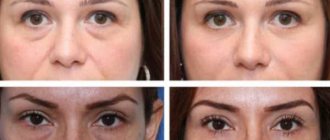Description of the medicine
Furosemide belongs to the group of loop diuretics - the most powerful diuretics to date. The mechanism of action of such drugs is to prevent reabsorption (reabsorption) of water by kidney cells along with ions of trace elements such as sodium, chlorine and potassium. By removing excess fluid from the tissues, swelling is reduced, as well as the volume of circulating blood. Thus, the drug not only eliminates swelling, but also reduces blood pressure.
The therapeutic effect after taking Furosemide tablets develops within 30-60 minutes and lasts no more than 5-6 hours. The injectable dosage form - a solution for intramuscular or intravenous administration - acts even faster. An important side effect of treatment with this diuretic is a decrease in the amount of electrolytes (potassium and magnesium) in the body, which are lost in large quantities in the urine. These elements are necessary for the normal functioning of various organ systems, so the drug should be used carefully, following the recommendations for restoring electrolyte balance.
Composition, dosages, prices
The active substance of both dosage forms of Furosemide is the chemical compound of the sulfonamide group of the same name. Its amount in one tablet is 40 mg, in a solution for injections and intravenous infusions - 10 mg/ml. Since the medicine is produced by many pharmaceutical companies, its prices are low:
- tablets, 20 pcs. – 25 rubles;
- tablets, 50 pieces – 23-34 rubles;
- solution in ampoules of 2 ml, 10 pcs. – 22-32 rubles.
Indications
Furosemide is prescribed for:
- edema caused by thrombosis (clogging) of veins, circulatory failure, liver and kidney diseases, as well as extensive burns;
- high blood pressure - arterial hypertension;
- ascites – accumulation of a large volume of fluid in the abdominal cavity (this occurs due to malignant tumors, heart disease, liver disease);
- swelling of the brain (usually after injury);
- pulmonary edema;
- severe complications of pregnancy (preeclampsia and toxicosis);
- premenstrual syndrome;
- acute poisoning - to remove poisons through urination;
- excess potassium in the body.
Contraindications
Furosemide in solution and tablets should not be taken for the following body conditions and diseases:
- hypersensitivity to the components of the drug;
- anuria – lack of urination (including cases of mechanical obstruction of the urinary tract);
- hepatic coma – severe dysfunction of the nervous system due to liver damage;
- dyselectrolythemia – electrolyte imbalance;
- self-poisoning of the body with waste products (for example, nitrogen compounds) in renal failure - uremia;
- pregnancy in the 1st trimester;
- breast-feeding.
Side effects
Features of the action of Furosemide can cause the occurrence of such undesirable side reactions as:
- decrease in blood pressure below normal;
- orthostatic hypotension, which is a short-term disturbance of cerebral circulation;
- heart rhythm disorders;
- muscle weakness;
- dizziness and headache;
- digestive disorders;
- confusion;
- thirst, dry mouth;
- dehydration;
- kidney inflammation;
- oliguria – excessive urination;
- acute urinary retention (in men with an enlarged prostate);
- hematopoietic disorders;
- allergic reactions due to hypersensitivity to the drug.
Diuretics for swollen eyes
Puffiness and swelling under the eyes is a common phenomenon that every person has to deal with from time to time. Swelling on the face gives a person an unhealthy, flabby appearance, adds age and makes a negative impression in general. Nobody wants to put up with unsightly swelling. But eliminating them is not as easy as it might seem at first glance.
The reasons for the formation of bags can be very different, sometimes it is a temporary, non-threatening cosmetic defect, and sometimes a symptom of a serious pathology affecting internal organs.
In the latter case, to remove swelling, you will need diuretics - special drugs of various compositions that stimulate the removal of excess fluid from the body.
Any, even the most gentle diuretic for swollen eyes based on medicinal plants should be selected only by a doctor.
For information: some patients, due to their own negligence or lack of time, do not attach much importance to swelling and bags around the eyes, but simply mask them with cosmetics.
Often the swelling subsides on its own in the evening, and the person stops worrying until it occurs again.
This behavior can lead to very serious consequences and complications. If swelling bothers you regularly, you should consult a doctor as soon as possible, find out the cause and select the necessary treatment.
Why does swelling occur?
To choose a truly effective remedy for puffy eyes, you first need to find out what causes this phenomenon. The skin under and around the eyes is very thin and sensitive. It needs constant hydration, quickly dries out under the influence of external factors, easily loses its tone and becomes wrinkled prematurely due to insufficient nutrition.
But under the thin skin there is loose fatty tissue. It has high hygroscopic properties, that is, it intensively absorbs moisture and retains it. If, under the influence of any factors, the balance of fluid in the body is disturbed, tissues of a similar structure are immediately filled with moisture. Visually, this manifests itself as swelling of the upper and lower eyelids.
Usually a person himself can easily determine the cause of swollen eyes: for example, a sleepless night or the abuse of liquid and salty foods before bedtime
Factors that provoke the formation of bags under the eyes can be divided into two large categories: pathological and non-pathological. Non-pathological ones include:
- Excessive consumption of salt and salty foods, especially before bed.
- Abuse of alcoholic beverages - alcohol can initially act as a diuretic, but then, on the contrary, it absorbs and retains fluid in the tissues.
- Eye strain during any work, even, at first glance, imperceptible, chronic fatigue.
- Reaction to aggressive external stimuli - polluted, smoky air, chemical fumes, ultraviolet radiation, wind, chlorinated or sea water, etc.
- Prolonged crying.
The main pathological provoking factors are as follows:
What causes dark circles under the eyes?
- Allergic reaction to food, medications; external irritants, dust, plant pollen, animal hair, etc.
- Any inflammatory processes of the organs of vision.
- Congenital abnormalities in the development of eye structures, in particular the upper and lower eyelids.
- Lymph circulation disorders.
- Diseases of internal organs and systems that can affect the circulation of fluid in the body and its elimination.
- Oncological pathologies.
- Injuries to the organs of vision.
If swelling occurs only occasionally and is caused by non-pathological causes, then serious pharmaceutical decongestants are not needed. It is enough to adjust your daily routine and diet, give up bad habits if possible - and the swelling will go away on its own. Gentle diuretic folk remedies for swelling under the eyes will help speed up the process.
You shouldn’t immediately run to the pharmacy for diuretics; first, you can try to cope with the problem using folk remedies at hand - they are more gentle and safe
If the swelling on the face takes on a permanent, chronic nature, accompanied by swelling in the arms and legs, you will need a more radical remedy for swelling - tablets, drops or special herbs with a pronounced diuretic effect. Only a doctor can tell you which ones after a comprehensive examination - after all, when treating one problem, it is important not to harm other organs and not to add new ones.
When are serious diuretics needed?
If a person had fun all night at a party with friends or simply drank a lot of liquid before going to bed, the next morning he may be upset by noticeable swelling under the eyes.
Naturally, everyone wants to quickly remove ugly bags, especially if they have to go to work or an important event. But you should not do this with the help of potent diuretics.
All tablets from this group have a number of contraindications and side effects; they may eliminate one-time swelling, but at the same time they can disrupt some functions of internal organs.
Pharmacy medications with active ingredients are needed in the following cases:
- The swelling does not decrease throughout the day; on the contrary, in the evening swelling appears on the arms and legs too.
- The swelling becomes larger over time and spreads to the cheekbones.
- The bags take on a dark color.
- Due to edema, a noticeable narrowing of the palpebral fissure develops (in severe cases, edema provokes displacement of the eyeball).
Furosemide for edema
This drug is widely known as an effective decongestant. In the form of a solution, it is used mainly in hospitals, in severe, life-threatening cases. For example, a dropper with Furosemide is placed for swelling of the lungs or brain, as well as dangerous burns and poisoning (to quickly remove poisons along with urine).
At home, that is, on an outpatient basis, the drug is usually used in tablet form. They are prescribed to eliminate swelling caused by heart disease, kidney disease, lymph and blood microcirculation disorders, and vein thrombosis. Thus, Furosemide helps with swelling of the legs, face and other parts of the body, including during pregnancy (starting from the second trimester).
It should be borne in mind that this medicine becomes addictive over time. That is, if at the beginning of treatment 1 tablet in the morning is usually enough to relieve swelling, then gradually you need to increase the single dose to 80 mg or take Furosemide twice a day. As a result, the negative impact on the body increases due to the loss of electrolytes, and side effects become more pronounced. In addition, after discontinuation of the drug, swelling may become even more pronounced, so this medicine is not recommended for long-term use, replacing it with a milder diuretic as soon as possible.
Diuretic herbs and tablets for puffy eyes
As a result of many reasons, swelling under the eyes can form.
Because of this action, the patient's face becomes larger and bags form on the lower eyelids.
This may be a symptom of a pathological disease that must be treated by eliminating fluid from the body. Diuretic tablets and herbs can help with this. Since they have many side effects and contraindications, they can only be used as prescribed by a doctor.
Causes of swelling under the eyes
There are the following reasons why swelling in the lower eyelids may appear:
- use of a large amount of salt and smoked meats in the diet;
- drinking alcohol in large quantities;
- sleep less than 8 hours a day, insomnia;
- allergic reactions that cause immune cells to appear around the eyes along with fluid, forming a local inflammatory response;
- severe eye strain, which can occur as a result of prolonged work in a cramped room, especially at a computer;
- diseases of the cardiovascular, urinary, endocrine systems;
- dysfunction of water-salt metabolism;
- violation of the outflow of lymph through the vessels;
- complications from malignant neoplasms in tissues, organs, blood;
- an abnormal structure of the eyelids that forms in utero, due to which deep lacunae are formed under the skin, so fatty tissue or fluid accumulates there;
- mechanical damage, infectious diseases of the organs of vision, which lead to activation of the immune system and an increase in fluid volume.
If the cause of swelling is physiological, it is not recommended to use medications. It is important to normalize the rhythm of life and sleep more.
If the cause is illness, the doctor will recommend diuretics to reduce retained fluid in the body.
When can you use diuretics?
Initially, when swelling on the face appears, it is recommended to normalize your rhythm of life, sleep more, rest, and eat right.
If this does not lead to improvement within a few weeks, it is recommended to use various herbal decoctions. They are considered a mild diuretic. The traditional method of therapy has fewer side effects.
If herbal decoctions do not help, you should contact an endocrinologist, neurologist, urologist, or therapist.
Any of these doctors may also recommend diuretic medications to rid the body of excess fluid. But first they will conduct research methods to confirm or refute the diagnosis.
Diuretic medications are necessary when excess fluid accumulates in the body and is distributed throughout the organs and tissues.
Diuretic tablets for puffy eyes
There are the most commonly used medications that are used to eliminate excess fluid in the body:
- Furosemide or Lasix. This is a drug that is primarily prescribed to patients in clinical settings and hospitals to cause a diuretic effect. It has a strong effect, so it is available only by prescription. But when you use it, the effect comes instantly. The dosage should be strictly limited. The drug is not recommended for children and pregnant women. Usually doctors prescribe 1 tablet once a day.
- Veroshpiron. It is slightly less effective than Lasix. However, the effect comes quite quickly. The drug is taken 1 tablet 1 time per day. It is also prohibited for pregnant women and children.
- Trifas. The drug is less dangerous for patients; it does not remove calcium along with the liquid. Therefore, there is no possible side effect in the form of seizures. After consuming the tablet, the effect occurs within 24 hours. The amount of medication used depends on the diagnosis made by the doctor. The maximum concentration of the drug should be no more than 4 tablets per day.
Patients need to know that any diuretic drugs should be taken only as prescribed by a doctor. If you resort to self-medication, you can achieve dehydration. The condition is dangerous due to a sharp rise in body temperature, loss of strength, and muscle cramps. As a result, the activity of the central nervous system may be disrupted.
Diuretic herbs for puffy eyes
There are traditional methods of treatment that have a gentler effect on the body. They are applicable for mild to moderate severity of various diseases. But if the patient has a serious illness, a complex of medications and folk remedies is recommended:
- Shepherd's purse. The dried plant should be taken in the amount of 1 tablespoon. Pour all 200 ml of just boiled water. It is necessary to stand until it cools completely. Drink half a glass 3 times a day.
- Chicory. This is a plant that has a tonic effect. If you add mint, yarrow, dill to it, a diuretic effect is formed. Herbs can be used fresh or dried. They are mixed together, 1 teaspoon is taken. Add 1 cup of boiling water. Leave until completely cooled. A glass of the product can be drunk throughout the day to create a diuretic effect.
- St. John's wort, plantain, rosehip. The most effective remedy is rosehip; it effectively eliminates swelling from the body. It is necessary to mix all the herbs in equal proportions, take 1 tablespoon. It is filled with 0.4 liters of just boiled water. Use the resulting mixture completely throughout the day in 3 doses.
- Bearberry. Take the herb in a concentration of 1 teaspoon. It is added to freshly brewed black tea. This remedy is used at least 4 times during the day.
- Herbal tea. It is better to use a type of product that contains lingonberries. It is also a natural diuretic. Each herbal tea instruction contains the required concentration for dilution. It depends on the amount of herbal remedies added and the desired effect for the patient. Herbal tea is best consumed daily before meals.
When using folk remedies, it is important for all patients to remember that they can cause an adverse reaction in the form of a severe allergy. Therefore, you should carefully read the composition of each folk medicine.
The effectiveness of diuretics
The first symptom of edema in the body is the accumulation of fluid in various areas of the body in the morning. In this case, it is recommended to monitor your health, eliminate alcohol consumption, and drink less liquid a few hours before bedtime.
Diuretic medications cause many adverse reactions if used incorrectly. Therefore, it is recommended to use them only as prescribed by a doctor in the following cases:
- lack of improvement, even with changes in diet and other factors;
- swelling on various parts of the body increases in size, reaching the face;
- severe swelling on the skin of the eyelids, due to which it is possible to completely not see the patient’s eyeball.
In these cases, the use of medications will be rational and most correct. But the dosage still needs to be selected by the doctor, depending on the diagnosis.
Furosemide: reviews for edema
Doctors evaluate this drug as a very effective remedy for eliminating swelling, but prescribe it with caution due to significant side effects. Without fail, the specialist also prescribes electrolyte balance-maintaining therapy with Asparkam or Panangin. Reviews of men and women who have taken this medicine will help you finally understand how effective Furosemide is for swelling on the face.
Victor, 56 years old: “I have problems with my kidneys, which is why my blood pressure is constantly elevated and my body is very swollen. I periodically take Furosemide along with magnesium and potassium. The swelling disappears almost instantly, but you constantly feel weakness in the muscles, and when you get out of bed, your vision becomes dark and you feel dizzy. Therefore, I try to use it only in particularly severe cases.”
Tatyana, 23 years old: “I took furosemide for swelling under the eyes that appeared every morning. I did this not on the recommendation of a doctor, but on the advice of a friend, so I didn’t even think about the side effects. Anti-edema pills really helped, but at the same time my health worsened. When I finally went to the clinic, I found out that the drug was potent and should not be taken that way.”
Oksana, 45 years old: “Due to thrombosis, my legs constantly swell and I have to take diuretics. Furosemide helps best, but you have to take Asparkam at the same time to avoid side effects.”
Causes of facial swelling
Often the causes of swelling on the face are temporary disorders in the body:
- water consumed in excess;
- excessively salty food;
- unbalanced diet (protein-free diets, fasting);
- minor injuries (bruises);
- insomnia.
Various pathologies are provocateurs of swelling:
- Cardiovascular diseases. The skin in the area of edema is pale or has a bluish tint.
- Postoperative swelling. The swelling is formed due to impaired lymph circulation.
- Liver diseases. Puffiness of the face appears with reduced protein production by hepatocytes, cirrhosis.
- Hypothyroidism is dysfunction of the thyroid gland. The face is constantly swollen, the swelling practically does not subside.
- Kidney diseases. A person wakes up in the morning and finds swelling on his face, swollen eyelids, and urinary disorders.
- Allergy. Subcutaneous tissue and mucous membranes instantly swell in response to irritants. Allergens provoke angioedema.
- Hypertension. High blood pressure destroys kidney tissue. The filtering organ cannot cope with removing fluid from the body.
- Insect bites. Swelling is caused by poison released by wasps, bees, bumblebees and other individuals.
- Benign and cancerous tumors. Edema develops when lymph flow is disrupted.
- Intoxication (poisoning with chemicals, corticosteroids and other medications).
- Hot weather. Swelling on the face develops under the influence of solar radiation.
- Idiopathic edema can be caused by various diseases: obesity, menopause.
- Damage to nerve endings. Edema occurs against the background of impaired tissue trophism and impaired lymph flow.
If swelling is persistent and tends to grow, you should consult a doctor. The specialist will identify the root cause of swelling on the face and prescribe adequate treatment for the underlying pathology.
When do you need diuretics for swelling of the face?
Diuretic tablets, injections and herbal extracts for facial swelling are effective medications. Exudate accumulated in the subcutaneous tissue puts pressure on blood vessels and nerve fibers. For this reason, blood circulation deteriorates, cells do not receive enough nutrients, and experience oxygen starvation. Compression of nerve endings leads to pain.
After taking diuretics, excess fluid is removed from the body, swelling subsides. Blood flow is restored and pain subsides. The swelling goes away spontaneously when the accumulation of fluid is not caused by cardiac or renal pathologies.
We recommend additional reading: Eye swelling due to allergies
If your face swells and bags form under your eyes, self-medication is dangerous. You need to visit a doctor, he will determine the cause of the swelling and prescribe appropriate diuretics.
For certain diseases, drugs that relieve swelling are strictly contraindicated. Diuretics are not prescribed for the following pathologies:
- liver cirrhosis;
- hypokalemia;
- acute renal, cardiac and respiratory failure;
- diabetes mellitus
Diuretics for edema
For swelling of the face and swelling under the eyes, diuretics are the main means of emergency treatment; diuretic medications instantly remove the aesthetic defect. Alternative and traditional methods of therapy are used for treatment. Patients are prescribed:
- pharmaceutical preparations (tablets, injection solutions);
- folk remedies (herbal infusions, decoctions, teas);
- a diet that includes foods with a diuretic effect.
Pills
The group of fast-acting diuretics includes drugs:
- Diacarb. The tablets normalize the water-salt balance, eliminate moderate and mild swelling on the face. The swelling disappears 2 hours after taking the medication. The medicine has a cumulative effect. The peak diuretic effect is observed after 24-48 hours.
- Furosemide torasemide is a powerful, fast-acting tablet. The medicine enhances the outflow of excess fluid 20-30 minutes after use. The diuretic effect lasts for 3-6 hours. The drug is used in critical conditions. The medication has a huge list of contraindications and unwanted effects. With uncontrolled use in organs and tissues, a lack of potassium, calcium and other vital elements occurs, and dehydration develops.
- Hypothiazide is a mild diuretic for swelling of the face. The medication blocks the absorption of sodium ions by the renal tubules. Microelements that cause swelling are excreted along with excess fluid. Tablets are prescribed for heart diseases and pathologies of the urinary apparatus.
- Spironolactone is a gentle diuretic. The tablets, by retaining potassium, accelerate the release of excess exudate and sodium. The medication helps to quickly relieve swelling. The medicine is used for liver and heart pathologies.
- Veroshpiron fights mild edema. The product has a gentle effect on kidney tissue. Excess fluid is removed from the body within 5 days. In this case, the urinary apparatus experiences minimal load. Potassium and other important elements are retained in the cells. How to take Veroshpiron for facial swelling: 25-400 mg daily. Dosage is affected by diagnosis and health conditions.
If a person has critical kidney problems, it is prohibited to use osmotic and potassium-containing diuretics to eliminate edema. Dangerous complications develop when using these drugs.
Injections
Injections are given if the patient is in serious condition:
- is unconscious or comatose;
- is burdened with a serious disease of the digestive system.
The injections work faster than the pills. If you choose the wrong drug, there is a risk of developing dangerous complications. For treatment, injection solutions prescribed by a doctor are used.
Diuretic injections include drugs:
- Mannitol. A potent diuretic removes edema resulting from the development of sepsis, peritonitis, oliguria, heart disease, and chemical poisoning.
- Lasix. The injection solution relieves swelling that occurs due to heart and kidney diseases and intoxication.
- Furosemide. The injections last for about 3 hours. Injections relieve swelling caused by pathologies of the kidneys, respiratory organs, heart, eclampsia, and hypertension.
However, not all pathologies can eliminate swelling with pills or injections. If facial swelling occurs due to hypothyroidism, diuretics are not included in the drug therapy regimen. They are not able to relieve swelling caused by a lack of triiodothyronine and thyroxine.
Cosmetic defects spoil a person’s appearance, making him look older than his age. After using diuretics, the skin acquires a natural shade, facial features are evened out, and signs of aging disappear. But the achieved result does not allow the use of injections of diuretic solutions for rejuvenation; there are other procedures for this purpose.
Traditional methods of getting rid of edema
In people who do not suffer from serious illnesses, swelling is relieved using traditional medicine recipes. There are many known medicinal plants with diuretic properties. Not only herbal extracts, but also fruits, vegetables, and herbs help get rid of puffiness on the face.
The effectiveness of herbal treatment is quite high if they are used correctly. Use folk remedies for edema strictly as prescribed by the urologist.
Herbs
Diuretic herbs for edema have a much gentler effect on the body than medications. Plant extracts improve digestion, strengthen the immune system, and remove excess fluid.
For swelling of the face, extracts of diuretic herbs are prepared:
- Lingonberry leaves have a powerful diuretic effect. Brew 1 teaspoon of raw material in 250 ml of boiling water. After a 30-minute pause, the product is filtered. To relieve swelling on the face, drink 50 ml of extract four times a day.
- A decoction of horsetail is prepared as follows: boil 250 ml of water, pour 2 teaspoons of raw material into the liquid. Filter after half an hour. Drink 50 ml four times a day.
- Parsley seeds are used when there is a violation of the water-salt balance, which provokes the appearance of swelling on the face. Boil 500 ml of water, cool, add 1 teaspoon of seeds. Leave for 8 hours to infuse, filter. Drink 30-50 ml of infusion with an interval of 2 hours.
- Bearberry leaves have a diuretic and anti-inflammatory effect. Add 1 teaspoon of herb to 250 ml of boiled water. Leave for a day to infuse. Take 80 ml on an empty stomach 3 times a day.
- Birch buds eliminate swelling that occurs due to diseases of the heart and urinary system. Add 25 g of plant material to 250 ml of boiling water, leave for 1 hour, filter. Drink 80 ml three times a day.











